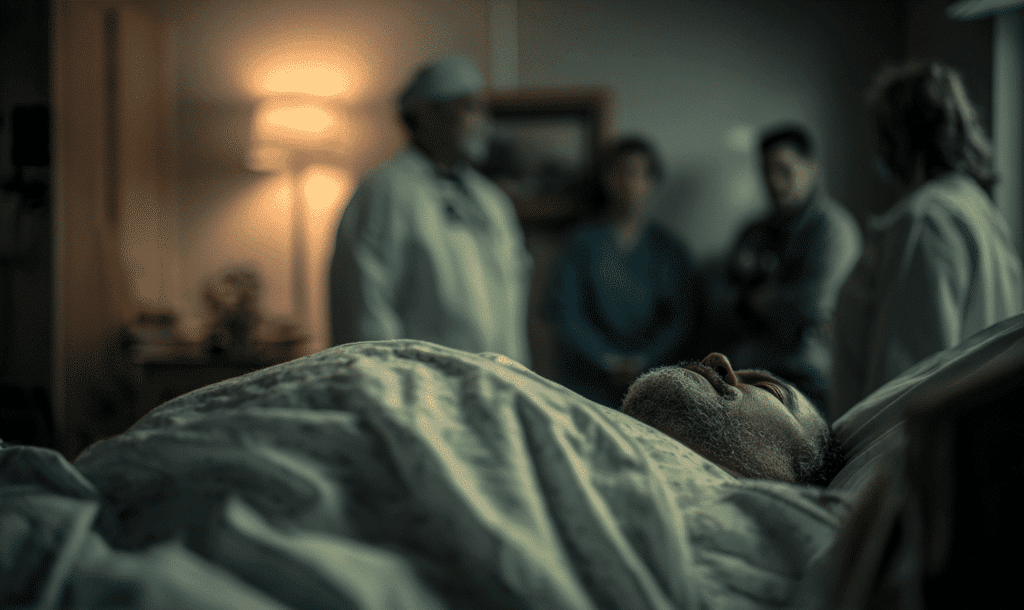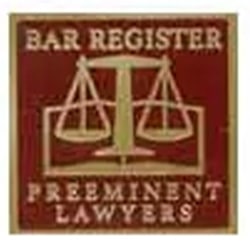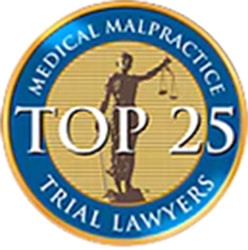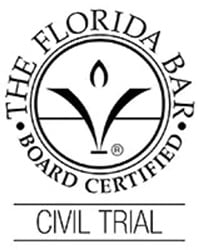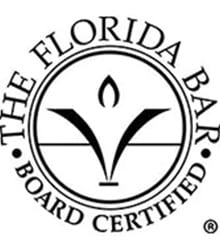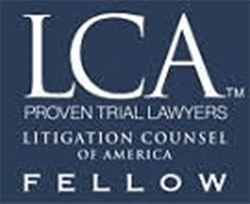When families lose a loved one due to medical negligence resulting in death, the emotional and financial devastation can be overwhelming. Understanding your legal rights and options during such a difficult time is crucial for seeking justice and compensation for your loss. Medical malpractice cases involving death represent some of the most serious forms of healthcare negligence, and families deserve to know when they may have grounds for a wrongful death claim.
Medical negligence occurs when healthcare providers fail to meet the accepted standard of care, leading to preventable patient harm or death. These cases require careful legal analysis to determine liability and pursue appropriate compensation for surviving family members.

Hurt or Lose a Loved one to Medical Malpractice? Let Us Help You
Hurt or Lose a Loved one to Medical Malpractice? Let Us Help You
Get your FREE & confidential case review todayWhat Is Wrongful Death Due to Medical Malpractice?
Wrongful death due to medical malpractice occurs when a patient dies as a direct result of a healthcare provider’s negligent actions or failure to act. This legal concept allows surviving family members to seek compensation when their loved one’s death was preventable and caused by medical errors or substandard care.
To establish a wrongful death claim based on medical malpractice, several elements must be proven:
- Duty of Care: The healthcare provider had a professional relationship with the deceased patient
- Breach of Standard Care: The provider failed to meet accepted medical standards
- Causation: The breach directly caused or significantly contributed to the patient’s death
- Damages: The death resulted in quantifiable losses to the surviving family members
Medical malpractice wrongful death cases can arise from various situations, including surgical errors, misdiagnosis, medication mistakes, birth injuries, anesthesia errors, and failure to diagnose life-threatening conditions. Each case requires thorough investigation by experienced legal and medical professionals to determine the strength of potential claims.
How Does Medical Negligence Result in Death?
Medical negligence can lead to death through numerous pathways, each representing a failure in the healthcare system’s duty to protect patients. Understanding these mechanisms helps families recognize when malpractice may have occurred.
Common Causes of Fatal Medical Negligence
Misdiagnosis or Delayed Diagnosis: When doctors fail to correctly identify serious conditions like cancer, heart disease, or infections, patients may miss critical treatment windows. This delay can transform treatable conditions into fatal ones, making timely and accurate diagnosis essential for patient survival.
Surgical Errors: Operating room mistakes can have devastating consequences, including wrong-site surgery, organ damage, anesthesia complications, or leaving surgical instruments inside patients. These errors often result from poor communication, inadequate preparation, or failure to follow established protocols.
Medication Errors: Prescription mistakes, including wrong medications, incorrect dosages, or dangerous drug interactions, can cause fatal reactions. Healthcare providers must carefully review patient histories and maintain accurate medication records to prevent these preventable deaths.
Hospital-Acquired Infections: Failure to maintain proper hygiene standards or follow infection control protocols can lead to deadly infections. When hospitals don’t implement appropriate preventive measures, patients may develop life-threatening conditions during their stay.
Birth Injuries: Negligence during pregnancy, labor, or delivery can result in maternal or infant death. This includes failure to monitor fetal distress, improper use of delivery instruments, or inadequate response to emergency situations during childbirth.

Medical Treatment Gone Wrong? Let Us Help You
Medical Treatment Gone Wrong? Let Us Help You
Get your FREE & confidential case review todayWhat Is the Average Payout for Medical Negligence in the US?
The financial compensation for medical negligence resulting in death varies significantly based on multiple factors, making it impossible to provide a single “average” figure. However, understanding the range and factors involved can help families set realistic expectations.
Factors Affecting Settlement Amounts
Age and Earning Capacity: Younger victims with higher earning potential typically result in larger settlements due to greater
Family Circumstances: The number and ages of dependents significantly impact settlement values. Families with young children or dependent spouses generally receive higher compensation to account for ongoing financial needs and lost support.
Degree of Negligence: Cases involving gross negligence or intentional misconduct often result in higher awards, including punitive damages designed to punish particularly egregious behavior and deter similar conduct.
Geographic Location: Settlement amounts vary considerably by state and region, reflecting differences in local economic conditions, jury attitudes, and legal precedents. Urban areas typically see higher awards than rural communities.
Typical Settlement Ranges
While every case is unique, medical malpractice wrongful death settlements generally fall within these ranges:
- Moderate Cases: $250,000 – $750,000 for elderly patients or those with limited earning capacity
- Substantial Cases: $750,000 – $2 million for middle-aged victims with dependents
- Major Cases: $2 million – $10 million+ for young professionals or cases involving gross negligence
These figures represent gross settlements before legal fees and expenses. Many attorneys work on contingency fees, typically ranging from 33% to 40% of the recovery amount.
How Hard Is It to Win a Wrongful Death Lawsuit?
Winning a wrongful death lawsuit based on medical negligence presents significant challenges, but success is achievable with proper legal representation and strong evidence. Understanding these challenges helps families prepare realistic expectations and make informed decisions.
Key Challenges in Medical Malpractice Cases
Complex Medical Evidence: These cases require extensive expert testimony to explain medical standards, causation, and how negligence led to death. Attorneys must work with qualified medical experts who can effectively communicate complex concepts to judges and juries.
Defendant Resources: Hospitals and medical professionals typically have substantial insurance coverage and experienced defense attorneys. They often have significant resources to contest claims and may employ multiple experts to challenge plaintiffs’ cases.
Burden of Proof: Plaintiffs must prove negligence by a “preponderance of evidence,” meaning it’s more likely than not that malpractice occurred. This standard requires compelling evidence linking the provider’s actions directly to the patient’s death.
Statute of Limitations: Most states impose strict time limits for filing medical malpractice claims, typically ranging from one to three years from the date of death or discovery of malpractice. Missing these deadlines can permanently bar claims regardless of their merit.
Factors That Improve Success Chances
Clear Documentation: Well-documented medical records showing obvious deviations from standard care strengthen cases significantly. Complete records help establish timelines and identify critical decision points where negligence occurred.
Strong Expert Witnesses: Qualified medical experts in relevant specialties who can clearly explain how negligence caused death are essential for success. These experts must be credible, experienced, and able to communicate effectively with lay audiences.
Experienced Legal Representation: Attorneys specializing in medical malpractice understand the complexities involved and have established relationships with medical experts. They know how to navigate procedural requirements and build compelling cases.
How Lawyers Handle Wrongful Death Claims Caused by Medical Negligence
Experienced attorneys follow systematic approaches to build strong medical malpractice wrongful death cases, beginning with comprehensive case evaluation and continuing through resolution.
Initial Case Assessment
Attorneys typically offer free consultations to evaluate potential claims, reviewing medical records, gathering preliminary information, and assessing the strength of potential cases. This initial assessment helps families understand their legal options without financial commitment.
Investigation and Expert Review
Once retained, lawyers conduct thorough investigations, obtaining complete medical records, consulting with medical experts, and identifying all potentially liable parties. This process can take several months, but it is crucial for building strong cases.
Filing and Discovery
Attorneys prepare and file formal complaints within applicable statute of limitations periods, then engage in extensive discovery processes to gather additional evidence. This phase includes depositions, document requests, and expert witness preparation.
Settlement Negotiations
Most medical malpractice cases resolve through settlement negotiations rather than trial. Experienced attorneys leverage their knowledge of case values and negotiation skills to secure fair compensation for their clients.
Contact Zoeller Law Today
Medical negligence resulting in death represents a tragic intersection of healthcare failures and legal remedies. While no amount of compensation can restore a lost loved one, wrongful death claims provide important accountability mechanisms and financial support for surviving family members.
Families facing these difficult situations should seek experienced legal counsel promptly to protect their rights and explore available options. With proper representation and strong evidence, it’s possible to hold negligent healthcare providers accountable and secure compensation for the devastating losses caused by preventable medical errors.
Understanding your legal rights and the complexities involved in medical malpractice wrongful death cases empowers families to make informed decisions during incredibly challenging times. Remember that consultation with qualified attorneys is typically free, providing valuable guidance without additional financial burden during your family’s time of grief.
Frequently Asked Questions
What is medical negligence?
Medical negligence occurs when healthcare professionals fail to provide the expected standard of care, resulting in harm or injury to a patient due to carelessness or mistakes.
Who can file a wrongful death lawsuit?
Immediate family members, such as spouses, parents, and children, are typically the ones who can file a wrongful death lawsuit, with some states allowing siblings and other relatives to be eligible as well.
What types of compensation are available in wrongful death claims?
In wrongful death claims, compensation typically includes economic damages like lost future income and medical expenses, non-economic damages such as emotional distress and loss of companionship, and, in some cases, punitive damages. This structured approach ensures that all aspects of the loss are addressed.
How can medical negligence be proven in court?
Proving medical negligence in court requires compelling evidence such as medical records, witness statements, and expert testimony to demonstrate both liability and causation. Strong documentation and expert insights are crucial for a successful case.
Why is legal representation important in wrongful death cases?
Legal representation is essential in wrongful death cases as it ensures victims understand their rights and navigate the complexities of the law effectively, significantly increasing the chances of a successful outcome. Having a knowledgeable attorney can help ensure compliance with legal requirements and advocate for the victim’s best interests.

